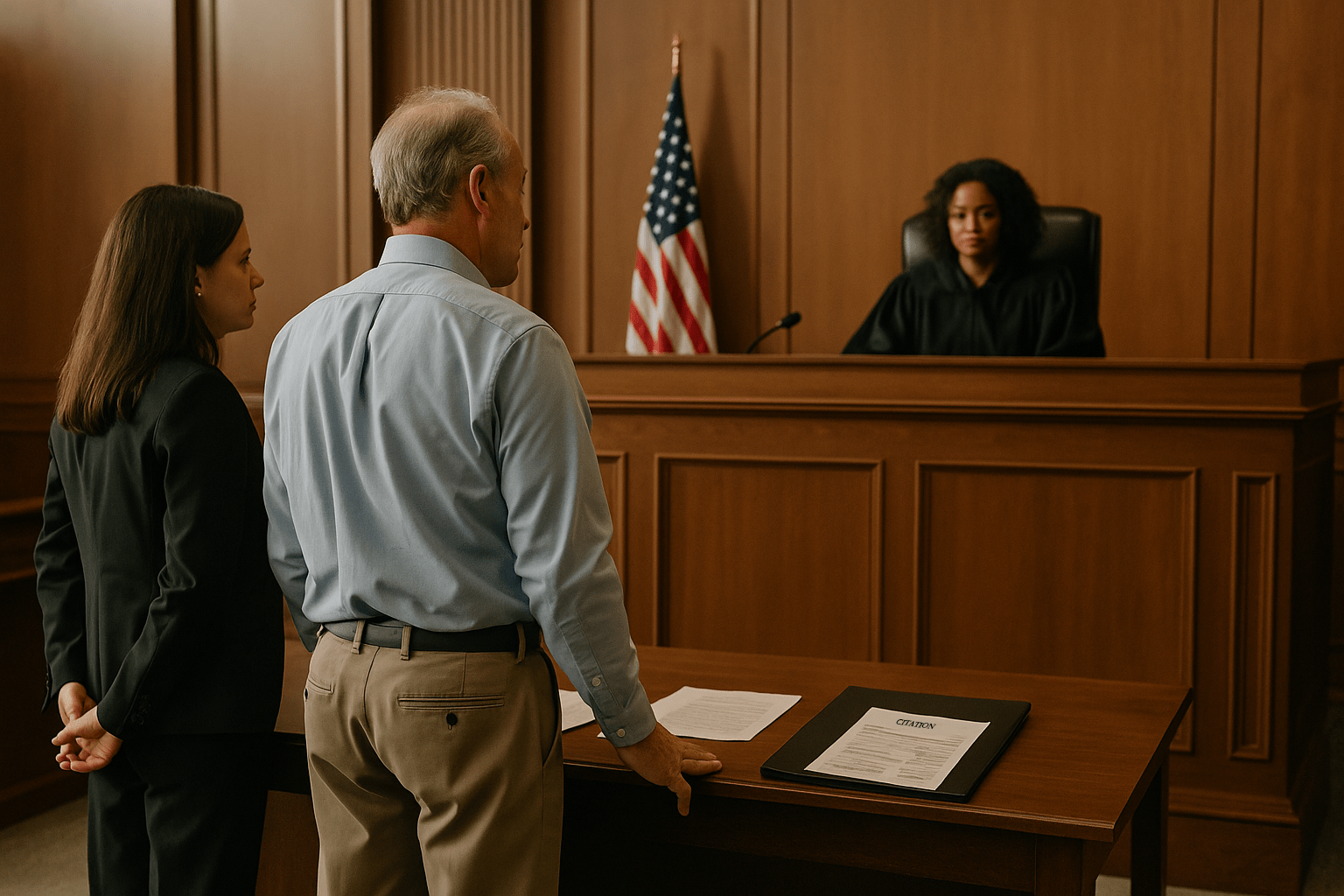Complete the form to schedule a free consultation with a traffic lawyer
Is It Worth Going to Court for a Speeding Ticket?

Cost-Benefit Insight: Is It Worth Going to Court for a Speeding Ticket?
Is it worth going to court for a speeding ticket? In many cases, the answer may depend on your circumstances, including concerns about license points, insurance impacts, or how a conviction may appear on your driving record.
Most drivers assume it’s easier to pay the fine and move on, but that convenience can come at a cost. Going to court may allow you to present your situation to the court and better understand your available legal options.
Decision Factors Explained: When Going to Court Makes Sense
While not every speeding ticket requires a courtroom appearance, there are specific situations where going to court can work in your favor.
You Have a Clean Driving Record
If this is your first violation, many judges are more lenient and may reduce the charge or offer supervision to keep your record clean.
You Were Only Slightly Over the Limit
In borderline cases—like going 5–10 mph over—you may be able to negotiate the ticket down to a non-moving violation that doesn’t add points.
You Believe the Ticket Was Issued in Error
If you were wrongly cited due to speed trap placement, faulty radar, or confusing signage, going to court gives you a chance to present your case.
You’re Facing Serious Penalties
Tickets issued in school zones, construction zones, or while driving at excessive speeds can carry harsher fines, points, or even license suspension. Going to court gives you the opportunity to minimize the damage.
What Happens When You Go to Court for a Speeding Ticket
Understanding the process can help you decide is it worth going to court for a speeding ticket in your specific case.
Pleading Not Guilty
You’ll be asked to enter a plea. By pleading not guilty, you request a hearing with a judge or magistrate where you can contest the ticket.
Presenting Your Case
You can present evidence such as:
- Dashcam footage
- Witness testimony
- Calibration records (if radar was used)
You’ll also have a chance to cross-examine the officer or ask questions related to the citation.
Negotiating a Reduced Charge
In many jurisdictions, a prosecutor may offer to reduce the charge in exchange for a guilty plea to a lesser offense. This often results in:
- No points
- Lower fines
- No insurance rate increase
Outcome Comparison Guide: Risks and Benefits of Going to Court
Benefits
- Potential dismissal or reduction
- No points added to your license
- Lower long-term insurance costs
- Better outcomes for CDL or commercial drivers
Risks
- Losing the case and paying the full fine
- Spending time in court without success
- Possible court fees if found guilty
Even with these risks, many drivers still find that the long-term advantages of fighting a ticket outweigh the short-term inconvenience.
Why Going to Court for a Speeding Ticket Is Often a Smart Move
So, is it worth going to court for a speeding ticket? If you’re looking to avoid points, reduce fines, or keep your record clean, the answer is usually yes. The potential savings on insurance alone can justify taking the time to contest the ticket. And if you’re unsure how to proceed, working with a traffic lawyer can make the process smoother and more successful.
Get Help with Speeding Ticket Court Appearances Today
If you’re wondering is it worth going to court for a speeding ticket, don’t decide alone. At Ticket Void, we connect drivers with experienced traffic attorneys who can appear in court on your behalf, negotiate reductions, or even get the ticket dismissed.
Request a free consultation today and get the help you need to fight your speeding ticket with confidence.
Frequently Asked Questions (FAQs)
1. Can I get my speeding ticket dismissed in court?
Yes. If there’s a lack of evidence or legal error, a judge may dismiss your ticket.
2. Will going to court always lower my fine?
Not always, but many judges reduce fines or charges for drivers who show up and make a case.
3. Do I need a lawyer to go to court for a speeding ticket?
It’s not required, but a lawyer can improve your chances, especially if you’re at risk of license suspension or have prior violations.
4. How long does traffic court usually take?
Most cases take less than an hour, but it can vary depending on court schedules and backlog.
5. What happens if I miss my court date?
Missing your date can lead to additional penalties, license suspension, or a default judgment. Always attend or reschedule in advance.
Key Takeaways
- Going to court for a speeding ticket can help reduce fines, avoid points, or dismiss the charge.
- Court is especially useful if you have a clean record, a minor offense, or strong evidence.
- Many drivers save money long-term by fighting tickets instead of paying them outright.
- Legal help can increase your chances of a favorable outcome in court.
- Don’t ignore your ticket—take action early to protect your license and your wallet.
Recent Posts
-
How Long Do Tickets Stay on Your Record in North Dakota?
-
How Long Do Tickets Stay on Your Driving Record in Oregon: Oregon Record Duration
-
How Long Do Violations Stay on CDL Records?
-
Violation Records Explained: How Long Does a Commercial Speeding Ticket Stay on Your Record?
-
CDL Ticket Duration: Timeline Guide for Commercial Driver Violations and Record Impact
